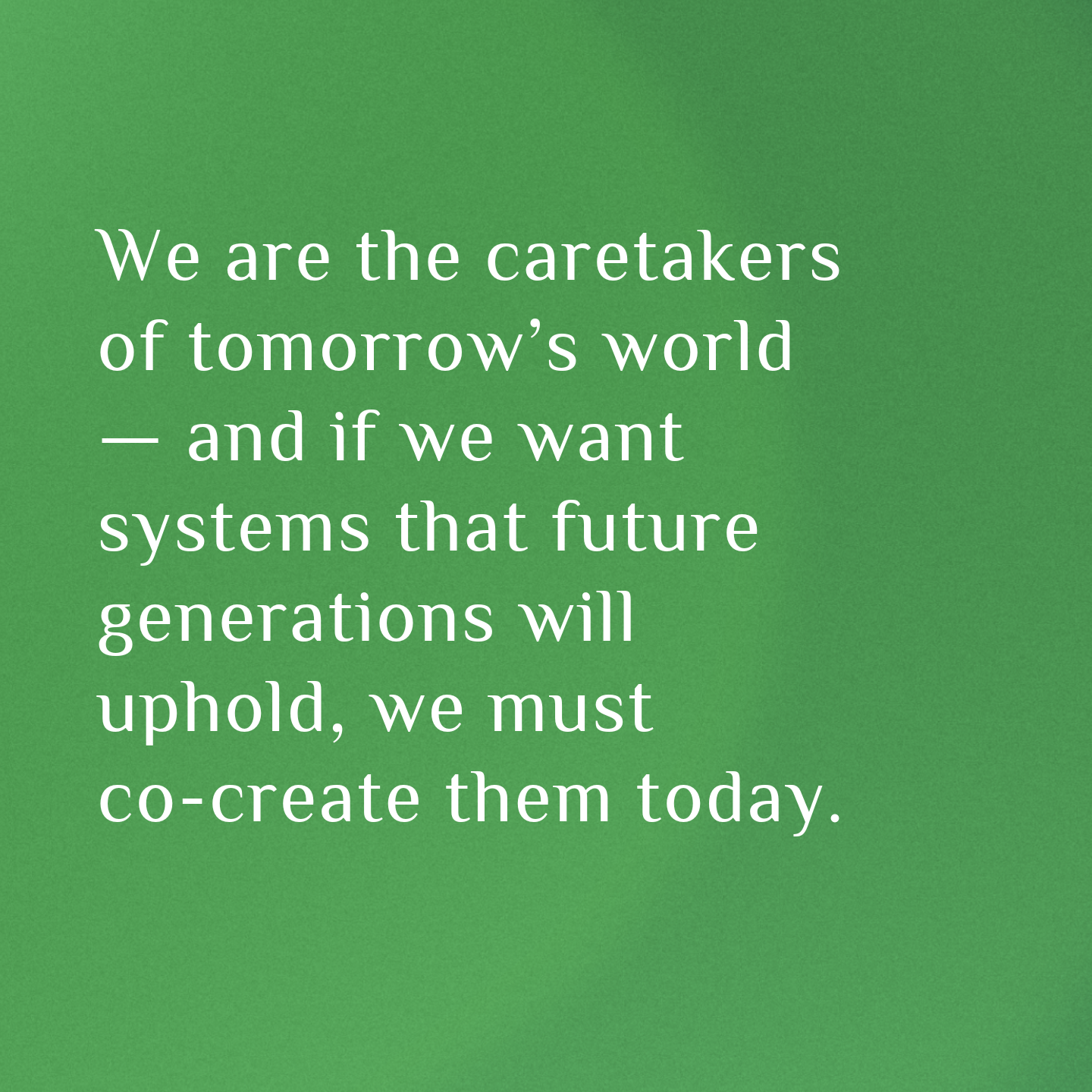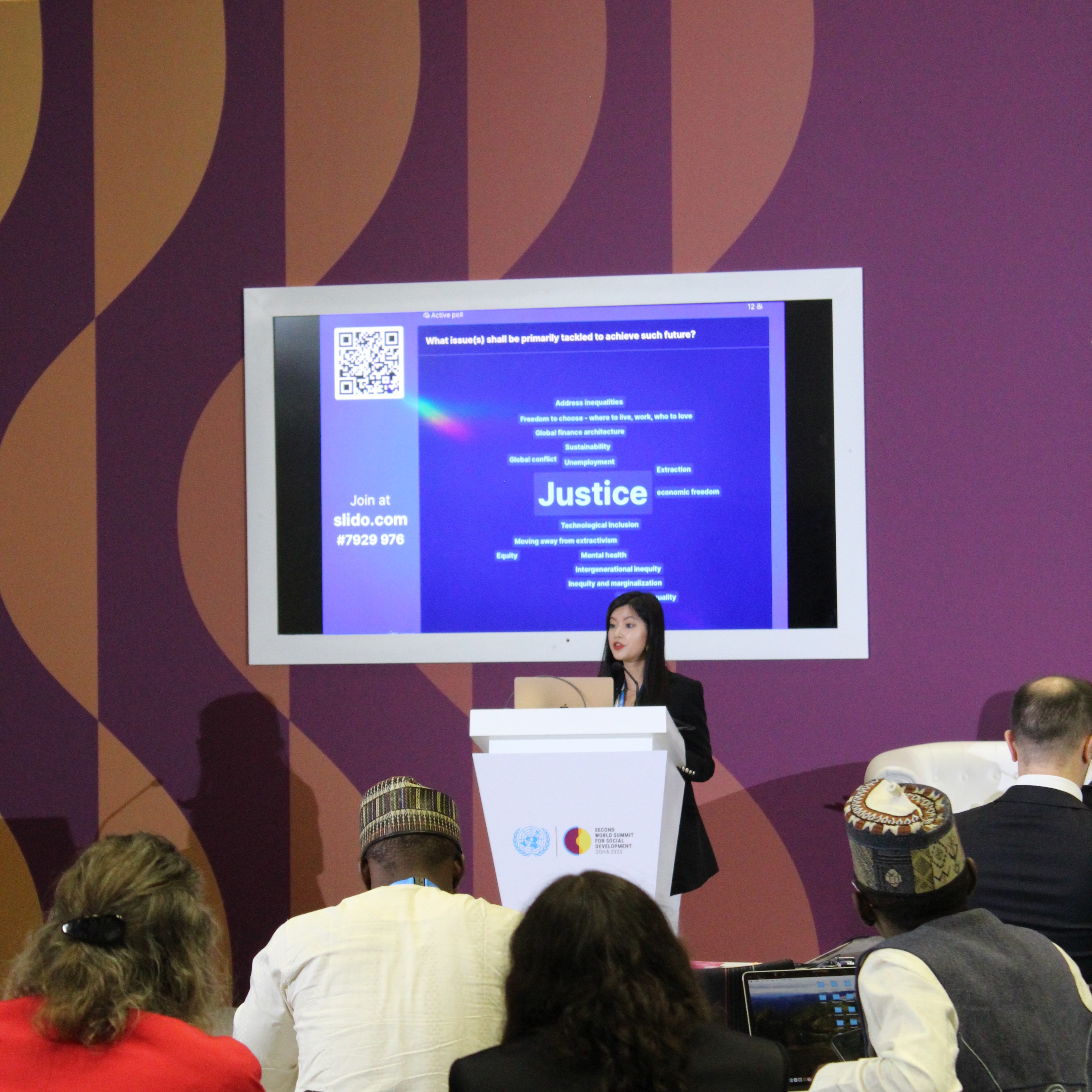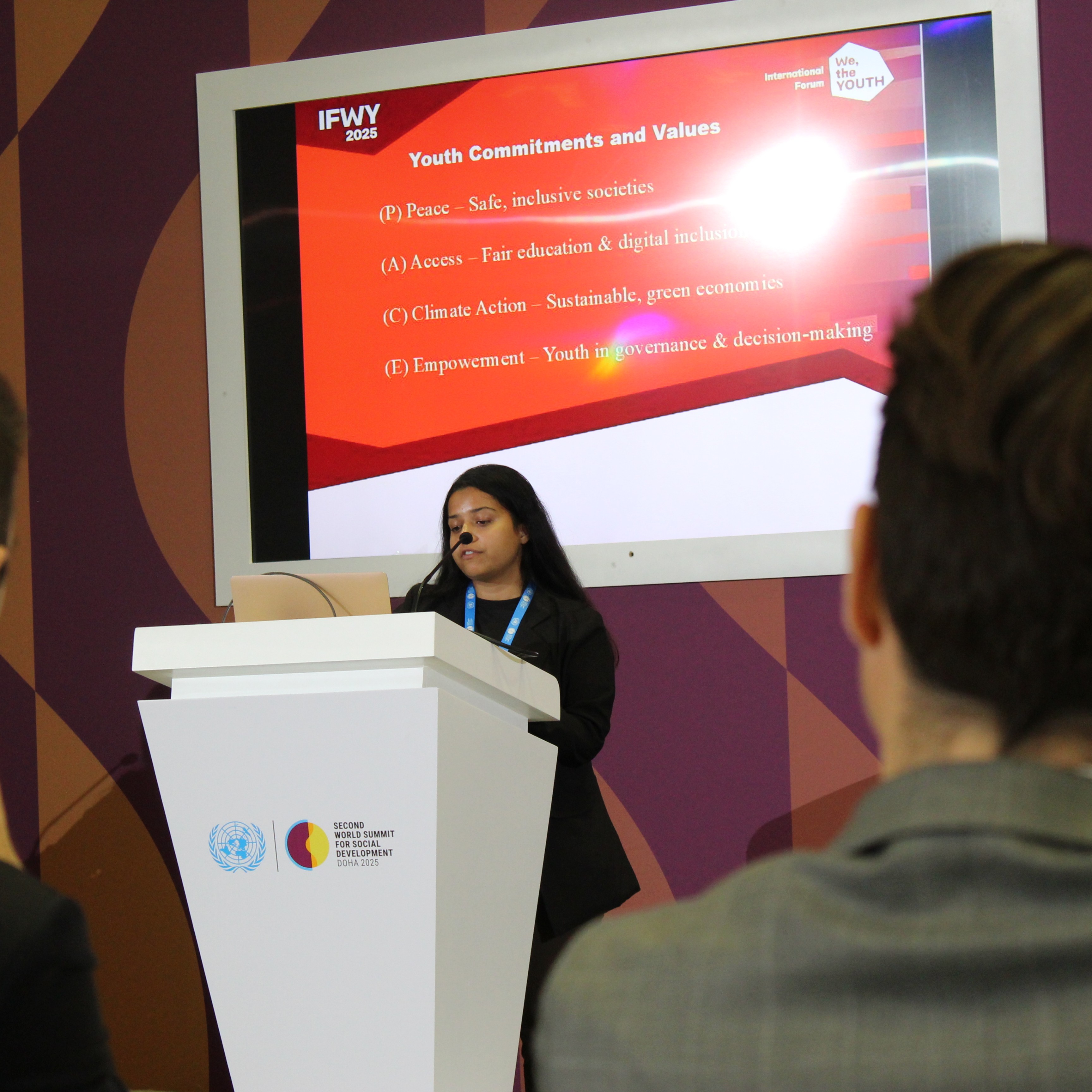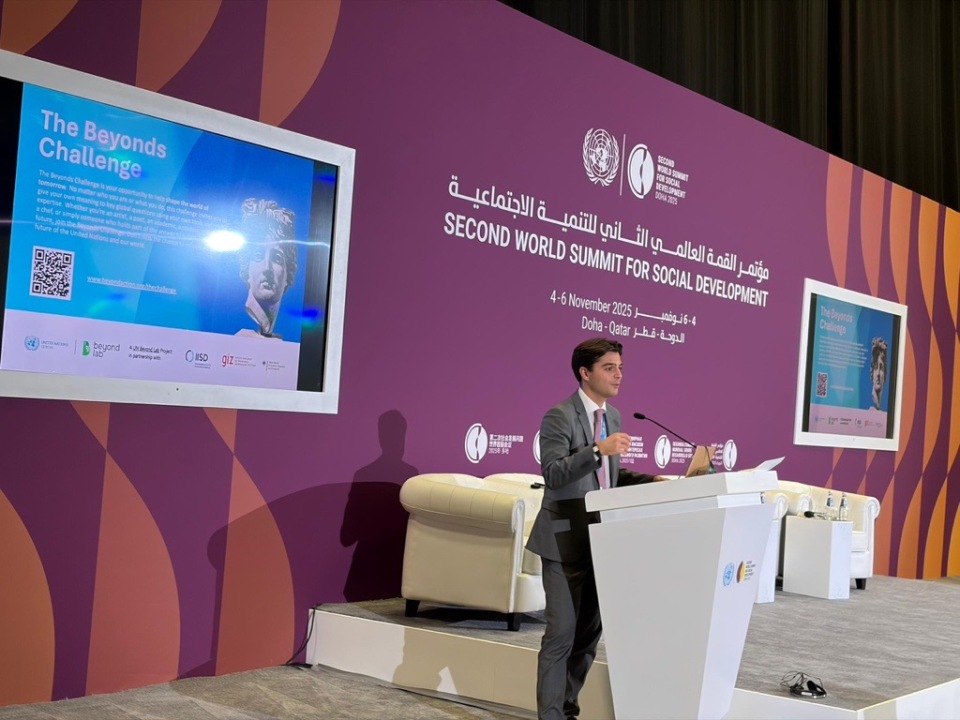13
November 2025
13
November 2025
Youth-Led Solutions for a Just Future: Social Inclusion and Peace through Youth’s Action at the Second World Summit for Social Development (WSSD2)

Beyond Lab at WSSD2 | "Youth-Led Solutions for a Just Future: Social Inclusion and Peace through Youth’s Action" Event Summary
“We care. We care about our planet, our prosperity, and our people. We are informed, engaged, and deeply committed. We question systems not to disrupt, but to improve. We are the caretakers of tomorrow’s world—and if we want systems that future generations will uphold, we must co-create them today.”
With these powerful words, the Beyond Lab’s Kristin Faessen brought the session Youth-Led Solutions for a Just Future: Social Inclusion and Peace through Youth’s Action to a stirring close at the Second World Summit for Social Development (WSSD2) in Doha, on November 6th, 2025.
Co-organized by Beyond Lab, UNRISD, and the Government of Botswana, and co-moderated by the Beyond Lab’s Davide Fanciulli and UNRISD’s Yuyu Chen, the event spotlighted two key initiatives walking the talk on meaningful youth engagement, UNRISD’s “International Forum We, the Youth (IFWY)” and the Beyond Lab’s “The Beyonds Challenge”. The event flipped the script on traditional policymaking. Instead of asking what youth need, it asked: what are youth already doing to build a just future—and how can we scale it?


Youth-Led Solutions for a Just Future: A Story of Action, Inclusion, and Bold Imagination
The event’s core message was clear: youth are not risks to be managed—they are bridgebuilders, innovators, and peace architects. Across regions, they are mediating disputes, countering misinformation, and designing inclusive policies. However, structural challenges persist, including under-financing and limited institutional access to decision-making.
The session opened with the presentation of the findings from UNRISD’s “International Forum We, the Youth (IFWY)” and related regional dialogues. Delegates from Asia, Europe, North America, and beyond shared stories of resilience and creativity, and concrete youth-led proposals for real-world impact, from restorative justice platforms to digital tools for early warning and cohesion. Such proposals aimed at stress-testing three main aspects, in alignment with WSSD2:

From Dialogue to Action: Youth as Co-Architects of the Beyonds
Crafting inclusive, participatory, and intergenerationally equitable futures is not an easy task. It requires courage, creativity, and constructive hope. It also requires the existence of spaces and initiatives opening the doors for priorities of young generations to be meaningfully heard and plugged into decision-making processes. This is precisely the rational behind the Beyonds Challenge, a global call for youth-led solutions that rethink sustainability, justice, and inclusion beyond 2030. The Challenge has been designed by the Beyond Lab with the support of IISD and the German Government, and its preliminary findings have been presented by Beyond Lab’s Davide Fanciulli throughout the second section of the event.

The Challenge received submissions from across continents—Pakistan to Brazil, Nigeria to Switzerland. But what stood out wasn’t just the diversity of geography—it was the depth of thinking. The preliminary analysis of these submissions highlights in fact several core, cross-cutting priorities of youth for sustainable and equitable futures:

The analysis also highlighted how youth naturally adopt systems thinking, weaving together climate, governance, and technology in their proposals. Their tone was action-oriented, pairing hope with practical solutions. Importantly, youth saw themselves not just as advocates, but as catalysts for regeneration and change.
Looking Ahead
The session concluded with a call to action: to scale youth-led solutions, embed youth voices in policy processes, and support cross-sectoral innovation. Initiatives such as the IFWY and the Beyonds Challenge offer concrete examples for how youth are already leading the way—thinking holistically, acting locally, and envisioning globally.
As we turn the commitments made during the summit into concrete actions, the Beyond Lab and its partners will continue to support youth leadership in shaping inclusive, equitable, and peaceful futures.